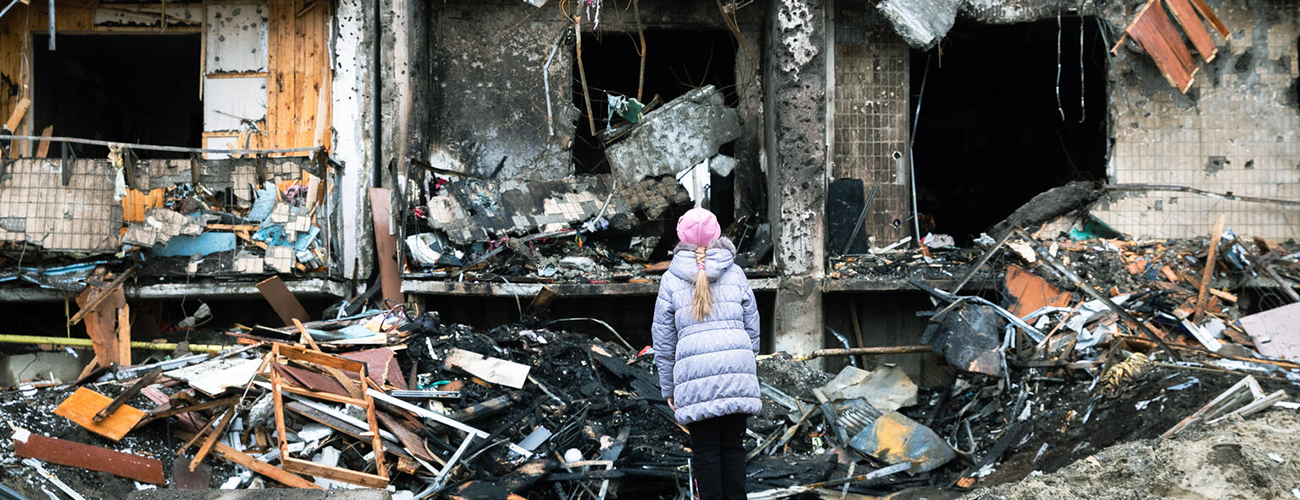A girl stands on the edge of a crater caused by a cruise missile. The blast heavily damaged an apart ment building in Kyiv on one of the first nights of the Russian invasion of Ukraine. Kyiv, Ukraine, February 25, 2022. (Anton Skyba)
In his 2020 Call to Action on Human Rights, UN Secretary-General António Guterres committed to developing an “Agenda for Protection.” The agenda provides an opportunity for the UN to reaffirm that the protection of crisis-affected populations is fundamental to its purpose and values. To be effective it should address the lessons learned from previous efforts to bring about a system-wide approach to protection, particularly the Human Rights up Front initiative. Critically, it should address the systemic and structural shortcomings of the UN to effectively respond to protection crises by providing strategic coherence to the fragmented ways in which the different UN entities contribute to protection.
This policy paper analyzes the policy, strategic, and operational priorities for the forthcoming Agenda for Protection. It focuses on how the UN system can reform the way it addresses protection crises while remaining mindful that its role is heavily influenced by member states. It argues that without a transformative and comprehensive approach that brings together the fragmented ways the different UN entities contribute to protection, the Agenda for Protection is likely to suffer the same fate as previous unsuccessful efforts, further undermining the organization’s credibility.
The paper concludes by providing several recommendations for the UN to consider as it drafts the Agenda for Protection:
- Establishing a clear vision statement and a commitment to protect;
- Setting out a common framework of protection measures to be implemented;
- Designating and resourcing a system-wide lead entity on protection;
- Outlining procedures to scale up the response in the event of a protection crisis;
- Developing an implementation plan and accountability framework; and
- Consolidating the reporting of protection results.








